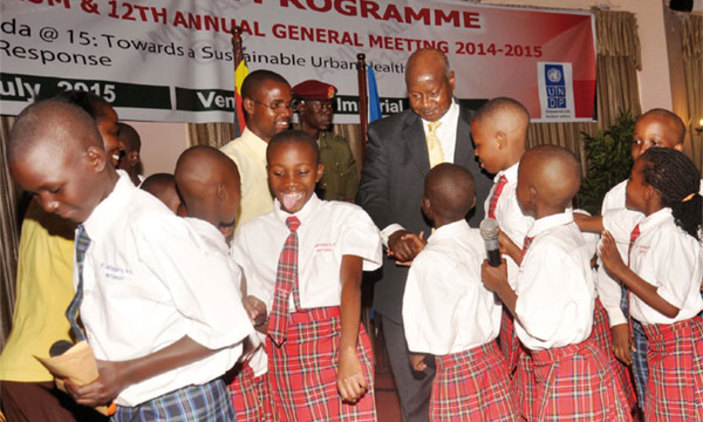New revelations have been made about a December 21 meeting, when President Museveni assembled university vice chancellors, ministry of education officials and technocrats from the National Curriculum Development Centre (NCDC) at State House Entebbe. Education minister Janet Museveni also attended the meeting.
According to The Observer, among proposed changes to the O-level curriculum, at least six subjects could be dropped and taught only in technical institutes.
Agriculture, home economics, technical drawing, metal/wood work, building practice and music, experts propose, should be taught in technical/farm institutes and polytechnic institutes.
Museveni ordered a new curriculum be developed and it should address the country’s perennial unemployment problem. Agriculture has particularly been an integral part of most secondary school’s teaching, taught as part of sciences. A proposal to move it to farm institutes is likely to be met with a backlash from educationists.
It was also agreed that commerce, accounts, office practice, and entrepreneurship be merged to form one subject and the same will apply to history and political education.
“We agreed that this was an overload on the students. NCDC had to read out the subjects they had and as a meeting, we selected subjects that we felt were core to the learner,” the source said. “Since the president was so keen on having less subjects, which were beneficial to the students, the meeting dropped some subjects [from the O-level syllabus] and agreed to keep some subjects.”

Out of the 42 subjects, the December 21 meeting zeroed on 14 subjects that would stay on the O-level syllabus: English, Literature, Biology, Chemistry, Physics, Mathematics, History, Geography, Religious knowledge, Fine art, Kiswahili, Commerce, local language and foreign language.
School timetables would also be reduced to six subjects per day, each taking only 45 minutes. Classes are also supposed to strictly end at 4pm. The new proposals from the State House meeting will encourage early specialization for learners.
Some educationists have been vocal against such a move, arguing that at that stage students are too young to know what they want.
Uganda has since independence nurtured an education system premised on the model of the colonial master, Britain which emphases academic and theoretical learning rather than practical education but government is trying to reverse this trend by promoting teacher of sciences coupled with both technical and vocational education.
Early 2015, government also revised the Advanced Level school curriculum and students starting this year are required to do Mathematics as a subsidiary in case they have not taken it as a principal subject or IT if one is doing Mathematics as principal subject in addition to General Paper which is a compulsory subsidiary subject.
Additional reporting by Observer











